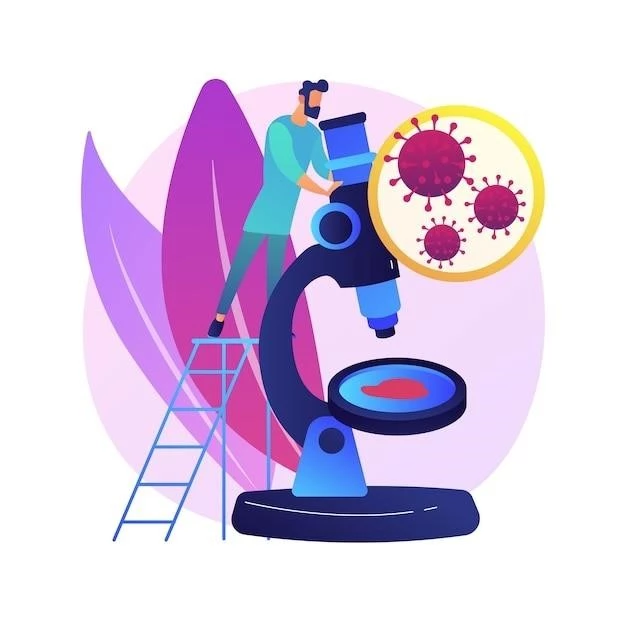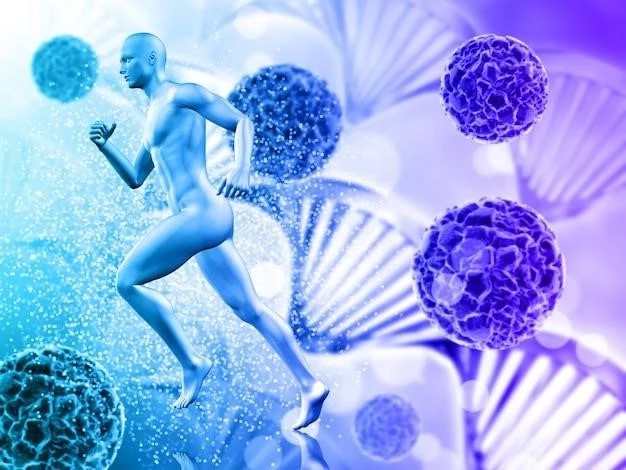Causes of Chromosome 12p Partial Deletion
Understanding the genetic mutation, inheritance patterns, and environmental factors.
Genetic Mutation
The partial deletion of chromosome 12p is primarily caused by random genetic mutations during fetal development. These mutations result in the loss of genetic material on the short arm of chromosome 12, leading to characteristic symptoms and developmental challenges.
Inheritance Patterns
Chromosome 12p partial deletion is typically not inherited but occurs sporadically as a random event. However, in some rare cases, the deletion may be inherited from a parent who carries a chromosomal rearrangement. Genetic counseling can help families understand the risk of passing on the deletion.
Environmental Factors
While genetic mutations play a primary role in chromosome 12p partial deletions, environmental factors can also influence the occurrence of these deletions. Factors such as exposure to certain toxins, chemicals, or radiation during pregnancy may potentially increase the risk of chromosomal abnormalities like 12p deletions.

Symptoms of Chromosome 12p Partial Deletion
Identifying physical symptoms, developmental delays, and cognitive impairments.
Physical Symptoms
Physical symptoms of chromosome 12p partial deletion may include facial abnormalities, limb differences, heart defects, kidney problems, and growth delays. Each individual may present with a unique combination of physical characteristics associated with this chromosomal abnormality.
Developmental Delays
Developmental delays are common in individuals with chromosome 12p partial deletion, impacting motor skills, speech and language development, and cognitive functions. Early intervention and tailored therapies can help address these delays and promote overall development in affected individuals.
Cognitive Impairments
Cognitive impairments associated with chromosome 12p partial deletion may manifest as intellectual disability, learning difficulties, and challenges with problem-solving and abstract thinking. Individualized educational support and cognitive therapies can help individuals with this condition reach their fullest potential despite these challenges.
Diagnosis and Testing for Chromosome 12p Partial Deletion
Exploring genetic testing, imaging studies, and clinical evaluation methods.
Genetic Testing
Genetic testing plays a crucial role in diagnosing chromosome 12p partial deletion. Techniques like chromosomal microarray analysis (CMA) and fluorescence in situ hybridization (FISH) can identify chromosomal abnormalities٫ including the specific deletion on the short arm of chromosome 12٫ providing valuable information for accurate diagnosis and management of the condition.
Imaging Studies
Imaging studies such as ultrasounds, X-rays, and MRIs may be utilized to evaluate any physical abnormalities associated with chromosome 12p partial deletion. These imaging techniques can help identify structural anomalies in organs, bones, and tissues, providing additional information to support the diagnosis and management of individuals with this chromosomal condition.
Clinical Evaluation
Clinical evaluation by healthcare professionals involves a comprehensive assessment of physical symptoms, developmental milestones, and cognitive abilities in individuals with chromosome 12p partial deletion. This assessment helps in confirming the diagnosis, determining the extent of the condition’s impact, and guiding personalized treatment plans for optimal care and support.
Treatment Options for Chromosome 12p Partial Deletion
Exploring early intervention programs, therapies, and medication management.
Early Intervention Programs
Early intervention programs play a vital role in supporting children with chromosome 12p partial deletion by providing therapies and educational services aimed at addressing developmental delays and promoting overall growth. These programs focus on enhancing skills, communication, and independence from an early age to maximize the child’s potential.
Therapies and Interventions
Various therapies such as physical therapy, speech and language therapy, occupational therapy, and behavioral interventions are crucial in addressing the specific challenges faced by individuals with chromosome 12p partial deletion. These targeted interventions aim to improve motor skills, communication abilities, daily living activities, and behavior management to enhance the individual’s quality of life.
Medication Management
Medication management is tailored to address specific symptoms and complications associated with chromosome 12p partial deletion, such as seizures, behavioral issues, and mood disorders. Close monitoring by healthcare providers helps ensure the effectiveness of medications while minimizing adverse effects, aiming to improve the overall well-being of individuals with this chromosomal condition.
Prognosis and Outlook for Chromosome 12p Partial Deletion
Evaluating long-term health considerations, quality of life factors, and potential complications.
Long-Term Health Considerations
Individuals with chromosome 12p partial deletion may face long-term health considerations such as ongoing medical monitoring, management of chronic conditions, and potential risks of associated health issues. Regular follow-up with healthcare providers is essential to address evolving health needs and ensure comprehensive care for optimal long-term health outcomes.
Quality of Life Factors
Quality of life factors for individuals with chromosome 12p partial deletion are influenced by access to support services, educational opportunities, social inclusion, and emotional well-being. Addressing these factors through multidisciplinary care and community resources can enhance the overall quality of life and promote independence and fulfillment for affected individuals.
Potential Complications
Individuals with chromosome 12p partial deletion may experience potential complications such as increased susceptibility to infections, sensory processing issues, behavioral challenges, and cardiac anomalies. Close monitoring, early intervention, and coordinated care are essential to address these complications and minimize their impact on the individual’s overall health and well-being.
Chromosome 12p Partial Deletion in Children
Exploring impact on growth and development, educational needs, and family support.
Impact on Growth and Development
Chromosome 12p partial deletion can impact growth by causing delays in physical development and potential challenges in achieving developmental milestones. Early interventions focusing on nutrition, physical therapy, and monitoring growth parameters are crucial in supporting optimal growth and development in children affected by this chromosomal condition.
Educational Needs
Children with chromosome 12p partial deletion have unique educational needs requiring individualized learning plans, specialized educational support, and accommodations to address learning challenges. Collaboration between parents, educators, and therapists is essential to create an inclusive and supportive learning environment tailored to the child’s specific cognitive and developmental requirements.
Family Support and Coping Strategies
Family support is essential for children with chromosome 12p partial deletion, requiring access to counseling, support groups, and respite care. Implementing coping strategies, fostering open communication, and building a strong support network within the family and community can help navigate the challenges associated with raising a child with this genetic condition.
Research and Studies on Chromosome 12p Partial Deletion
Exploring current findings, emerging treatments, and genetic counseling efforts.
Current Studies and Findings
Ongoing research on chromosome 12p partial deletion focuses on understanding the genetic mechanisms underlying the condition, identifying associated health implications, and developing potential therapeutic targets. Recent studies aim to improve diagnosis accuracy, explore treatment options, and enhance the quality of life for individuals affected by this chromosomal abnormality.
Emerging Treatments and Therapies
Emerging treatments for chromosome 12p partial deletion are under exploration, including targeted therapies aimed at addressing specific symptoms and improving overall developmental outcomes; Novel therapeutic approaches, such as gene editing technologies and personalized interventions, show promise in potentially ameliorating the effects of this genetic condition and enhancing the well-being of affected individuals.
Genetic Counseling and Family Planning
Genetic counseling is crucial for families affected by chromosome 12p partial deletion, providing information on inheritance patterns, recurrence risks, and family planning options. Guidance from genetic counselors empowers families to make informed decisions regarding reproduction, prenatal testing, and the potential impact of the condition on future generations.
Support and Resources for Chromosome 12p Partial Deletion
Accessing patient advocacy organizations, support groups, and specialized care services.
Patient Advocacy Organizations
Patient advocacy organizations play a vital role in providing support, raising awareness, and advocating for individuals and families affected by chromosome 12p partial deletion. These organizations offer resources, educational materials, and a sense of community to empower and assist those navigating the challenges associated with this genetic condition.
Support Groups and Online Communities
Support groups and online communities offer valuable emotional support, shared experiences, and information exchange for individuals and families affected by chromosome 12p partial deletion. These platforms provide a sense of belonging, access to practical advice, and a supportive network to navigate the unique challenges associated with living with this genetic condition.
Access to Specialized Care and Services
Access to specialized care and services is essential for individuals with chromosome 12p partial deletion to receive tailored medical attention٫ therapies٫ and educational support. Collaborating with multidisciplinary healthcare teams and specialists can ensure comprehensive and individualized care to address the specific needs and challenges associated with this genetic disorder.
